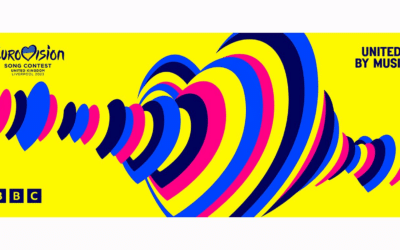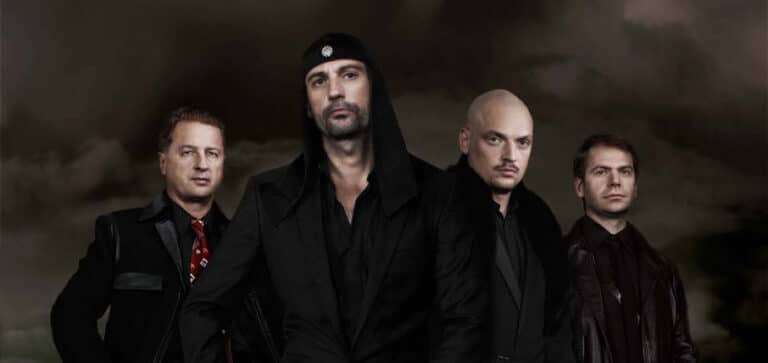Heavily political Slovenian industrial rock outfit Laibach have had a planned unofficial Kyiv ‘Eurovision’ concert cancelled.
The cancellation came after comments made by the band about the ongoing war with Russia angered many Ukrainians.
The band had announced the March 31 Eurovision gig at Kyiv’s Bel Etage Music Hall on March 31, touted as the first time a foreign band had played the Ukrainian capital since the Russian invasion, in a statement last week which addressed the official show taking place in Liverpool this year, despite Ukraine having won last year’s competition:
“While the rest of Europe prepares to celebrate its idea of freedom and solidarity on 9 May in Liverpool, Laibach is taking Eurovision back to Ukraine, where it belongs and where the only true and real vision of Europe is taking place right now.”
The band added that all proceeds from the concert would be donated to charity.
Any excitement among Ukrainian Laibach fans was short-lived however, as Ukrainians took understandable offence at comments about the Ukrainian War made by the band, including one in a group statement issued to The Guardian which described it as “a cynical proxy war for the geostrategic interests” of world powers.
Slovenia’s STA news agency said many Ukrainians posting on Facebook compared Laibach’s statement to Russian state propaganda that portrays the invasion as a conflict with NATO (itself the title of a 1994 Laibach album) and reduces Ukraine to a puppet state of the West.
The band has now announced the concert’s cancellation, via a further statement on its website:
“The announcement of the Laibach concert in Kyiv caused considerable controversy due to comments made by the band at the start of this unjust war. This was never our intent. Laibach once again wish to express unequivocal support for Ukraine and Ukrainians and equally unequivocal condemnation of the Russian aggressors, and in the interest of not causing further tension, our concert at the Bel Etage Music Hall in Kyiv on 31 March 2023 will not go ahead. Ticket refunds are available from the point of purchase.”
The Bel Etage Music Hall addressed the cancellation with a statement on Facebook that admitted it had been torn over whether the gig should go ahead: “While the team showed support for Ukraine and Ukrainians and condemned the Russian regime, a large part of the audience came out categorically against Laibach’s visit. In order to prevent the unnecessary division of Ukrainians into different camps and to eliminate the cause of discord, we have decided to cancel the Laibach concert at Bel Etage.”
It’s not the first time Laibach, who frequently employ militaristic imagery in their artwork and appearance, have attempted to perform in a war zone. The group performed two concerts in Sarajevo in 1995, when the city was besieged by Bosnian Serb forces during the Bosnian war.
Laibach are also no strangers to controversy. Formed in the former Yugoslavia in 1980, the group quickly became notorious for their use of fascistic and totalitarian symbols in what they later described as “a dadaist adventure.”
They moved to London in 1984 after being banned from performing in Yugoslavia, though were later welcomed back by Slovenia following its independence.
The fluid avant-garde collective, based around four key members who all use pseudonyms and featuring close to 30 former members and collaborators, are known for their surreal hardcore industrial noise covers of original songs spanning Europop, national anthems, the Beatles, Status Quo and the Sound of Music soundtrack.
In 2015, the band became one of the first non-Korean bands to perform in North Korea.












